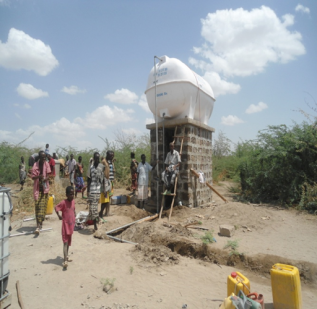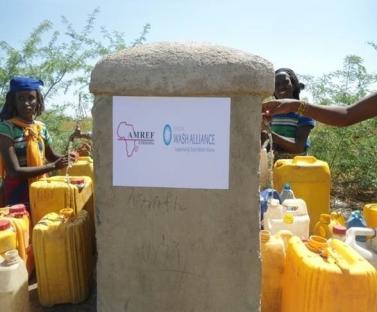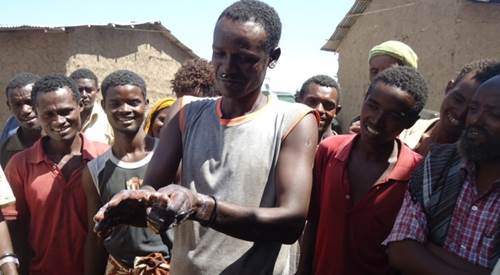A successful pilot in Ethiopia deserves to be scaled up for health care centres in other parts of the country.
Published on: 11/12/2015


Recently, I have had the opportunity to visit Awash, Ethiopia for the Research-based Learning and Community-based Monitoring on Hygiene Promotion and Community Empowerment in the WASH programme. This is a three year initiative (2013-2015) facilitated by IRC, which aims at improving the effectiveness of selected Dutch WASH Alliance (DWA) local partners' interventions on hygiene promotion and community empowerment.
In Ethiopia, the focus has been on Hygiene Promotion effectiveness with the support of AMREF Ethiopia, based in Awash (Afar region). This action research comprises of a number of support interventions, namely: assisting at a health care facility, serving four schools of around six hundred students, creating four water points for 1,300 households (6,500 people), establishing three shower centres (300 people visiting these daily) and giving hygiene promotion for households.

For the health care facility, standard latrines were constructed. The latrines have a separate ladies and gents room, and a hand washing facility is now available. Water supply system extensions have been constructed via the community water supply sources nearby the health facility. In addition, a roof catchment with a reservoir has been placed in the first year of the project.
What makes this programme unique is that latrines are now used by clients, visitors as well as health workers. Hand washing facilities are now used consistently by medical staff and patients as there is a water reservoir tank which includes an option of rainwater harvesting. Given the success of this pilot, the idea is to scale it up in health care centres in other parts of the country.
For me, it was an enriching experience to visit Awash, Ethiopia for this specific project. My role has been to evaluate this programme not only in Ethiopia, but also in Ghana, Uganda and Bangladesh. The reason for me to go to this specific programme was to assist in the final stakeholder workshop in which an evaluation of their programme took place reflecting on recommendations and possible ways forward to sustain the action research learning and WASH interventions now in place. Looking at the achievements in this programme, I'm confident of its success. However realistically speaking it would be most useful to have a second phase of this programme in which model examples such as the improved WASH health facilities could be scaled up with quality in other areas around the country. I look with great interest to see what will happen in the coming period as the evaluation workshop for the overall programme will take place at the end of January.
At IRC we have strong opinions and we value honest and frank discussion, so you won't be surprised to hear that not all the opinions on this site represent our official policy.